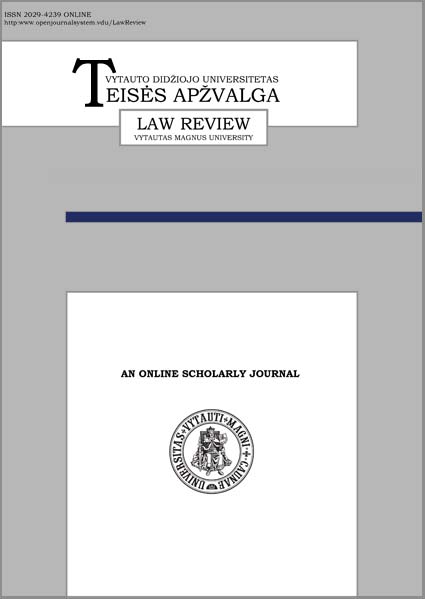Paskesnioji apkalta: samprata, privalumai ir trūkumai
Late Impeachment: Conception, Advantages, Disadvatages and Possible Application in Lithuanian Legal System
Author(s): Osvaldas RaščiukevičiusSubject(s): Law, Constitution, Jurisprudence, History of Law
Published by: Vytauto Didžiojo Universitetas
Keywords: Late impeachment; Resignation; Impeachment procedure; State official; Breach of oath
Summary/Abstract: Impeachment is a special procedure, during which state officials can be removed from their positions. It originated in XIVth century, England, in order to strengthen system of checks and balances. It was a tool to create more responsible government. At the beginning the institute of impeachment was very broad: it could be applied to any person (not only state officials), had no concrete procedure and the impeached person could be given various penalties, ranging from fine to capital punishment. Eventually the scope of impeachment was narrowed and it evolved into political tool. England‘s colonies inherited this institute, but it was modified: scope of penalties and subjects were narrowed. Meanwhile late impeachment was part of the regular impeachment from the day it originated, when institute of impeachment was quite broad. Eventually it vanished, but even nowadays is one of the talking points while discussing responsibility of state officials. Late impeachment is defined as impeachment and possible disqualification of former officers based upon their conduct while in office. Late impeachment was not implemented in Federal Constitution of US, though it was not prohibited either. Discussions about late impeachment were renewed after impeachment of Richard Nixon, who resigned during impeachment procedures and avoided disqualification. Most legal scholars tend to support late impeachment because of these reasons: 1) late impeachment prevents situations, when official, who resigns or his term in office comes to an end during the procedure of impeachment, can be elected into that same position again – he avoids disqualification; 2) late impeachment prevents officials from getting social benefits, which can be enjoyed by other former officials; 3) late impeachment allows to increase sense of responsibility among state officials. But some legal scholars say, that in cases, where officials commit a crime, it is not worthwhile of parliament‘s efforts, because such case will still end up in regular court. Impeachment in Lithuania has the same purpose as in England or USA – to increase responsibility culture among state officials. Lithuanian laws don‘t allow late impeachment. However, prohibition of late impeachment is not entirely compatible with Constitution of the Republic of Lithuania for the following reasons: 1) state official may use such loophole to avoid constitutional responsibility; 2) state official can again occupy position, which he was removed from; 3) oath may be breached once in a lifetime, according to official constitutional doctrine, but such person could breach it again; 4) it reduces responsibility and public control of state officials; 5) it can violate principle of equality; 6) state officials, who resigned or their term in office came to an end, maintains social benefits.
Journal: Teisės apžvalga
- Issue Year: 2017
- Issue No: 1(15)
- Page Range: 61-83
- Page Count: 23
- Language: Lithuanian

